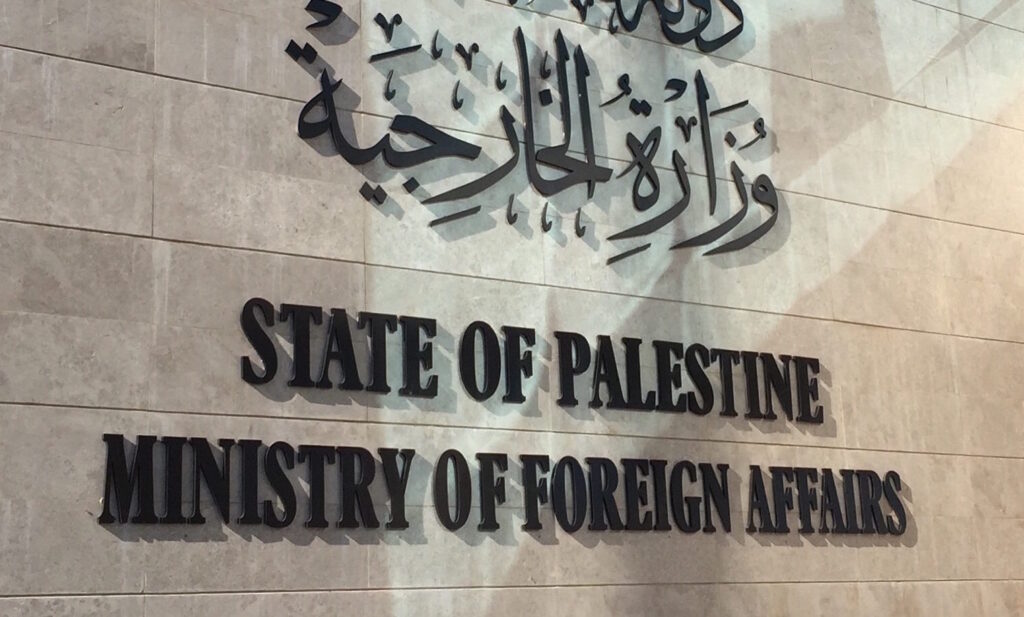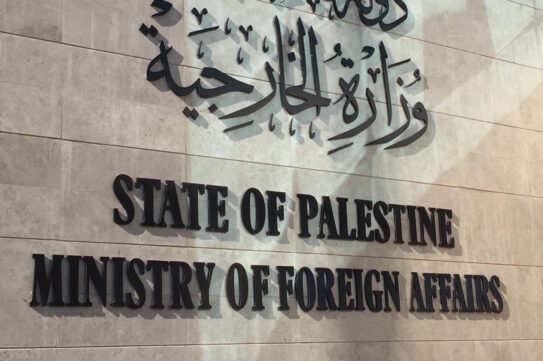
On 15–17 December, Sweden’s foreign minister Margot Wallström visited the Palestinian territories for bilateral talks with president of the Palestinian Authority Mahmoud Abbas and Foreign Minister Riad al-Malki.
According to a Swedish official statement, the talks focused on ‘how Sweden and Palestine can deepen their relations following Sweden’s recognition of Palestine, the importance of democratic development, respect for human rights and gender equality, and what can be done to strengthen hopes of a two-state solution, with Israel and Palestine living side by side in peace and security’.
In an op-ed prior to her visit, PM Wallström outlined her intentions: ‘I visit Palestine to be able to talk directly with the Palestinian leadership and Palestinian civil society. We will be discussing a number of issues, including the necessity of democratic development in Palestine, as well as human rights and gender equality.’
In Sweden, FM Wallström’s visit attracted almost no attention in the media, with the exception of one editorial and two statements by members of the opposition.
In an editorial in the daily Svenska Dagbladet, columnist Per Gudmunsson argued that Sweden should have put demands of democratic reform as a pre-condition for the recognition of Palestine: ‘We recognised the state of Palestine but we didn’t manage to get the Palestinians to behave as grown ups. We fired off all we had in our diplomatic repertoar but we haven’t yet advanced as much as a milimeter forward.’
In a commentary to news agency TT, the leader of the Liberalerna party Jan Björklund chose to speak to the issue of Palestinian recognition of the Jewish state demanding that: ‘Magot Wallström must deliver loud and clear criticism to the Palestinian leadership for not recognising Israel’s right to exist. This is the pre-condition for any peace accord.’
In another commentary to TT, the foreign policy spokesperson for the Moderaterna party Karin Enström similarly focused on relations with Israel, rather than with Palestine: ‘FM Wallström must now work to improve Sweden’s relations with Israel. This is especially important as Sweden will have a greater international responsability as a member of the United Nations Security Council 2017’.
FM Wallström’s visit comes in the midst of a particularly turbulent time in both Israeli and Palestinian domestic politics.
In Israel, currently, stands the political battle of the eviction of the Amona settlement in the West Bank. While the Supreme Court has ruled the settlement has been built on privately owned Palestinian land and must be evacuated by 25 December, parts of the government and Knesset members struggle to find ways to bypass this and to simultaneously legalise more settlement blocks.
In the Palestinian territories, the Fatah party has just finished its 7th party congress and finds itself in an internal cleansing process. Due to clever manoeuvring by its leadership, all opponents to leader Mahmoud Abbas and his garde have been made to leave the party leadership, in some cases even stripped of their party membership.
Hence, both the Israeli and Palestinian political arenas are currently seeing internal processes that must lead any serious observer to question the democratic character of either of the two political systems.
In addition, news also broke during FM Wallström’s visit of the Trump administration’s pick for new US ambassador to Israel. Apparently, its choice has fallen on David Friedman, an American bankruptcy lawyer openly aligned with the Israeli far right. In a first commentary to his nomination, Friedman hinted that the US embassy in Tel Aviv would be shortly moved to Jerusalem.
This news, in turn, caused outrage on the Palestinian side with Secretary General of the PLO Saeb Erekat stating that a changed US stance on the holy city would destroy the peace process completely and could even ‘send the region to chaos’.

